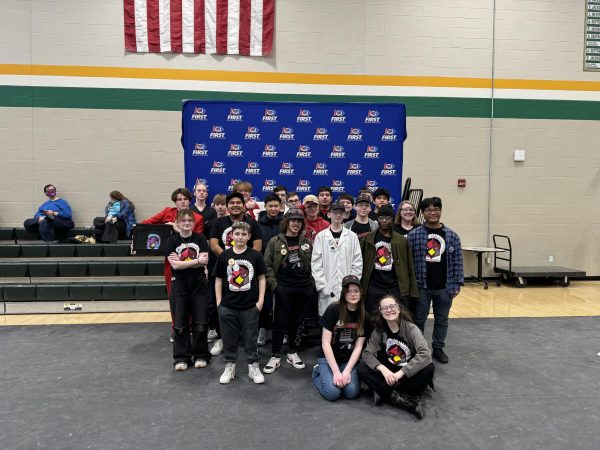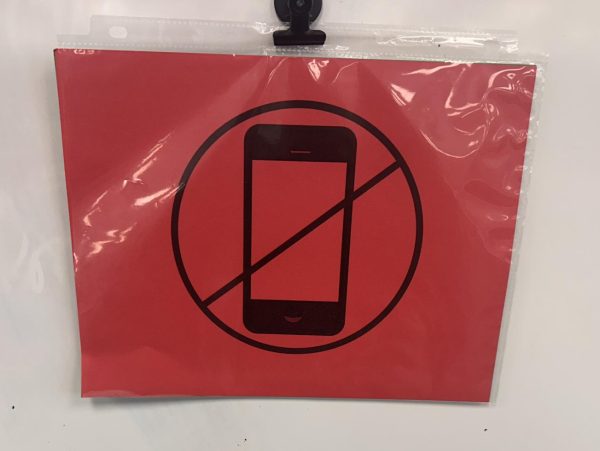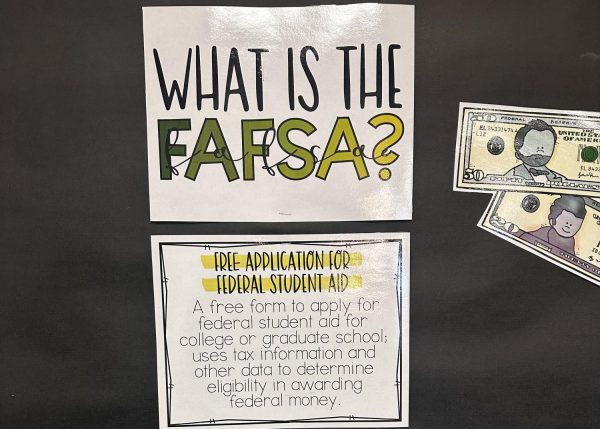Extended story: Social studies department considers online textbook options for years to come
February 12, 2015
Online textbooks are starting to become a very common thing throughout the world of education and even here at SHS. The social studies department is only the second department to make the switch to all online textbooks this year, according assistant principal Ms. Amy Boone.
“The goal is to eventually switch over so that all the courses will have an online version,” Boone said. “There will still be the need in some cases to have a classroom set of books in case there is a technology issue.”
Social studies department head Mr. Nathan Fishel helped make this decision. Textbook adoption occurs every six years at SHS. This year, the social studies department made the decision to switch to online books for the following year. Although the department is switching to online books, hardback textbooks will still be available for alternate use.
“Teachers and students will gain access to online resources that will better enrich and reinforce learning,” Fishel wrote in an email to the Journal.
SHS has already switched to technology as an alternative for many ways of learning, issuing the Chromebooks to the students being one of them. Select subjects such as Biology, Algebra 2 and the entire English department at SHS have already substituted some online books for textbooks but some still have traditional hard-back textbooks, Boone says. The online books, according to Boone, make it easier to do work outside of class and travel between classes with fewer books.
The goal is to eventually switch over so that all the courses will have an online version, Boone said.
Online books are also more convenient because students do not have to carry separate books from class to class, Fishel says. Students are less likely to forget their electronics than they are to forget their physical books.
Voice of America’s online news site says there is a significant financial benefit from the virtual books, as well. Fishel says it is cheaper to have online books rather than textbooks.
“The kid (or guardian) pays the textbook rental fee,” Fishel said. “Books get lost. Books get damaged and misplaced, and (those are) extra fees. If it’s all on one Chromebook, you take away that opportunity to get those extra fees. But, now they have to worry about damaging the Chromebook.”
Fishel says one of the downsides of having the online books is that some students do not use a Chromebook. There are still some regular books in the classrooms for alternate use or to teach a lesson. Some teachers will use the textbooks in class, but some will work with the online books.
Senior Kris Wienning is one of the students without a Chromebook.
“I just didn’t get one,” Wienning said. “They all have books in class, so it’s not a problem.”
Fairfax County Public Schools in Virginia switched their social studies books to online in 2012. Voice of America an online news site says about 10 percent of students in Fairfax County don’t have a computer or online access at home. Alternatives for internet access were suggested, such as going to a public place with available Internet access or going to a friend’s house who has Internet.
Although SHS’s social studies department has not yet decided what program they will use for the online books, it will be assured the best program will be provided for the students education available, Fishel says.
El Paso Independent School District (EPISD) switched to the e-books Oct. 8, 2014. The district says it has been beneficial overall, according to El Paso Times.
“The curriculum has been enhanced with additional augmentation such as video and interactive exercises,” said a FAQ document on device initiative by EPISD. “In no way does the device water down the curriculum.”
Even though EPISD says the online books enhance the learning, Microsoft co-founder and technologist Bill Gates says that while it plays a role, technology is not is the most important part of this new way of teaching the students. The electronics used for education are useless without the participation of the kids and staff.
“Technology is just a tool.” Gates said. “In terms of getting the kids working together and motivating them, the teacher is most important.”






